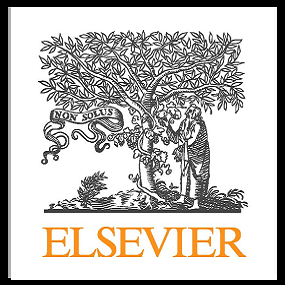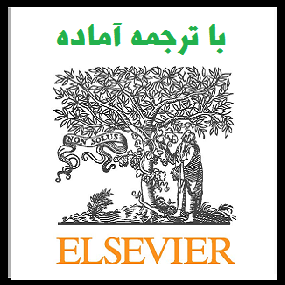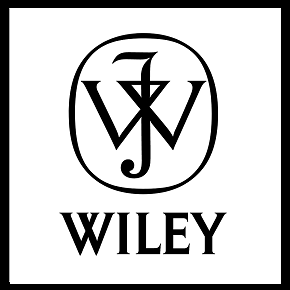مقاله انگلیسی پولشویی از طریق مدیریت استراتژیک معاملات حسابداری (2018 الزویر)
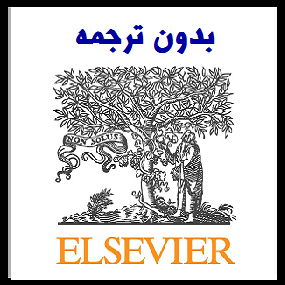
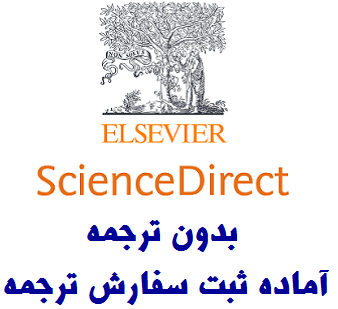
| عنوان فارسی مقاله | پولشویی از طریق مدیریت استراتژیک معاملات حسابداری |
| عنوان انگلیسی مقاله | Money laundering through the strategic management of accounting transactions |
| فهرست مطالب | Abstract Abbreviations Keywords ۱ Introduction ۲ The context of Mafia-controlled firms ۳ Theoretical Framework, related research and hypothesis development ۴ Methodology ۵ Results and discussions ۶ Conclusions Appendix A. Variable definitions References |
| نمونه مقاله انگلیسی | abstract
We develop new transaction management (TRM) proxies, to find empirical evidence of the strategic management of accounting transactions, aiming to carry out money laundering activities, within a sample of 355 firms controlled by Italian Mafias. Our results reveal that, using a cluster analysis, Mafia-controlled firms can be classified into two different groups corresponding to real firms and shell firms, based on specific assumptions on their distinctive peculiarities. Importantly, our regression estimations provide evidence of different TRM practices of these firms, which may be linked to specific money laundering activities. Finally, the seizure of Mafia-controlled firms and their assignment to legal administrators only have a significant impact on TRM within Mafiacontrolled shell firms, whereas the null impact on TRM, within Mafia-controlled real firms, casts doubt on the ability of legal administrators to completely deter money laundering. This study proposes new TRM proxies, based on the nature of the expenditure transaction, which could be used by authorities as accounting red flags of money laundering activities. Furthermore, this study may support critical arguments against the orthodox view of the anti-money laundering role of accounting and the suitability of traditional TRM proxies to depict practices within firms sharing common traits with Mafia-controlled firms. Indeed, these firms may engage in TRM for illicit and/or opportunistic purposes, when the external scrutiny is weak, their financial statements are irrelevant for trading with stakeholders, because of competitive advantages or dominant market positions, and they can count on colluded actors as counterparties of money laundering transactions. Introduction This paper intends to determine whether the strategic management of accounting transactions, aiming to carry out money laundering activities within firms in specific contexts, leave some detectable traces in the financial accounting information, which can act as red flags of illicit practices. In this regard, Neu, Everett, Rahaman, and Martinez (2013) argue that it is the strategic use of accounting transactions that simultaneously supports the realization of criminal business activities and consolidates criminal networks among public servants, businessmen, and politicians. More specifically, we examine transaction management (TRM) within a sample of 355 firms, defined as Mafia-controlled firms (MCFs), given that they are controlled, directly or indirectly (through figureheads and strawmen), by a Mafia clan affiliated with an Italian Mafia organization such as: Cosa Nostra, ‘Ndrangheta, Camorra, or Sacra Corona Unita (Champeyrache, 2014). In this regard, the firms in our sample are defined as MCFs because they have been seized by judicial authorities, following the accusation of Mafia-type association against their owners, based on the article 416-bis of the Italian criminal law. Importantly, this article prescribes the seizure and confiscation of all the assets, including firms and company shares, of the charged person, which consist of the proceeds of the crime or their investment. Seized MCFs are managed by legal administrators appointed by judicial authorities with the purpose of continuing the business activities and keeping the level of employment in full respect of the law. Therefore, this study analyses MCFs not only before the intervention of judicial authorities, when Mafiosi owners hold full control, but also after their seizure and assignment to legal administrators. Indeed, an additional purpose of this paper is to determine whether there is a significant change in TRM practices of MCFs following their seizure. Despite the difficulties in producing accurate estimates, recent studies (Calderoni, 2014b; Savona & Riccardi, 2015) reveal that the annual illegal proceeds of Mafia organizations in Italy amount to approximately 10.7 billion Euros. In addition, about 9% of the total investment of Mafia organizations in the legal economy between 2007 and 2013 consists of firms (Transcrime, 2013). These figures provide evidence of the significant presence of MCFs in Italy. However, prior research suggests that Italian Mafias also operate in other European countries such as Spain, Germany and Netherlands (Forgione, 2009; Roth, 2010; Transcrime, 2013). Furthermore, money laundering transactions involving firms are widespread in Europe (Eurostat., 2013) and in most of the other world countries, as evidenced by the Panama Papers (ICIJ, 2016). |
| نمونه ترجمه کامپیوتری | چکیده
ما پروکسی های جدید مدیریت معاملات (TRM) را برای کشف شواهد تجربی از مدیریت استراتژیک معاملات حسابداری، با هدف انجام عملیات پولشویی، در نمونه ای از 355 شرکت تحت کنترل مافیای ایتالیا، توسعه می دهیم. نتایج ما نشان می دهد که با استفاده از تجزیه و تحلیل خوشه ای، شرکت های تحت کنترل مافیا را می توان به دو گروه مختلف متصل به شرکت های واقعی و شرکت های پوسته تقسیم بندی کرد که براساس فرضیه های خاص بر ویژگی های متمایز آنها است. مهمتر از همه، برآورد رگرسیون ما شواهدی از شیوه های مختلف TRM این شرکت ها را ارائه می دهد که ممکن است با فعالیت های خاص پولشویی ارتباط داشته باشد. در نهایت، تشخیص شرکت های تحت کنترل مافیا و تخصیص آنها به مدیران حقوقی تنها در شرکت های پوسته مافیا کنترل قابل توجهی بر TRM می باشد، در حالی که تاثیر ناخالصی بر TRM در شرکت های واقعی واقع در کنترل مافیا، موجب شکایت مدیران قانونی می شود به طور کامل پولشویی را متوقف کنید. این تحقیق، پروکسی های جدید TRM را براساس ماهیت معامله هزینه پیشنهاد می کند که می تواند توسط مقامات به عنوان پرچم های قرمز برای فعالیت های پولشویی مورد استفاده قرار گیرد. علاوه بر این، این مطالعه ممکن است از استدلال های مهم در برابر دیدگاه ارتدوکس از نقش پول نقد حسابداری و مناسب بودن پروکسی های سنتی TRM برای نشان دادن شیوه های درون شرکت هایی که ویژگی های مشترکی با شرکت های تحت کنترل مافیا دارند را پشتیبانی کند. در واقع، این شرکت ها ممکن است برای اهداف غیرقانونی و / یا فرصت طلبانه در TRM شرکت کنند، زمانی که نظارت خارجی ضعیف است، بیانیه های مالی آنها برای تجارت با ذینفعان به دلیل مزیت رقابتی یا موقعیت های غالب بازار موثر نیست و می توانند به بازیگران متخلف معامله گران معاملات پولی. توجه؛ (این ترجمه توسط نرم افزار انجام شده و ویرایش نشده است و احتمال وجود اشتباه در آن وجود دارد. در صورت ثبت سفارش، ترجمه توسط مترجمین مجرب انجام خواهد شد. برای مشاهده نمونه ترجمه های تخصصی و اخیر مترجمین جهت اطمینان از کیفیت ترجمه، اینجا کلیک نمایید.) |
| سال انتشار | 2018 |
| ناشر | الزویر |
| مجله | چشم انداز انتقادی در حسابداری – Critical Perspectives on Accounting |
| کلمات کلیدی | شرکت های کنترل شده مافیا، پول شویی، شرکت های Shell، مدیریت معاملات |
| کلمات کلیدی انگلیسی |
Mafia-controlled firms, Money laundering, Shell firms, Transaction management |
| صفحات مقاله انگلیسی | 21 |
| مناسب برای رشته | حسابداری، مدیریت و اقتصاد |
| مناسب برای گرایش | مدیریت مالی، اقتصاد مالی و حسابداری مالی |
| توضحیات | این مقاله انگلیسی جدید بوده و تا کنون ترجمه نشده است. جهت ثبت سفارش ترجمه از لینکهای زیر استفاده نمایید. |
| دانلود مقاله انگلیسی | ○ دانلود رایگان مقاله انگلیسی با فرمت pdf (کلیک کنید) |
| سفارش ترجمه فارسی | ○ سفارش انجام ترجمه و تایپ این مقاله (کلیک کنید) |
| سایر مقالات این رشته | ○ مشاهده سایر مقالات رشته حسابداری (کلیک کنید) |

